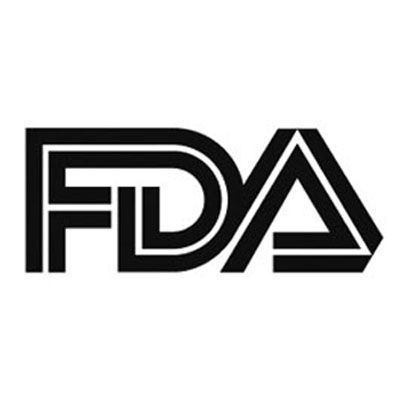FDA Halts Development of Select Allogeneic CAR T-Cell Therapies Due to Safety Concern
All clinical trials of allogeneic CAR T cells developed by Allogene Therapeutics, Inc have been halted by the FDA pending an investigation of a chromosomal abnormality event.

The FDA has placed a partial clinical hold on all clinical trials for the development allogeneic CAR T-cell therapy sponsored by Allogene Therapeutics, Inc, according to a press release issued by the developer.1
The decision to place the partial clinical hold was based on a report of a chromosomal abnormality in ALLO-501A CAR T cells observed in an adult with stage IV transformed follicular lymphoma and c-myc rearrangement. The patient's tumor was refractory to 2 prior lines of immune-chemotherapy and additional radiation therapy and the patient was treated with ALLO-501A in the phase 1/ 2 ALPHA-2 study (NCT04416984).
“Patient safety is our highest priority, and we are committed to working closely with the FDA to evaluate any potential clinical implications of this finding and determine next steps for advancing ALLO-501A and our clinical programs,” said Rafael Amado, MD, executive vice president of Research and Development and chief medical officer, in a press release.
The patient whose case led to the trial halt was ineligible for an autologous CD19 CAR T-cell therapy due to manufacturing failure associated with the inadequate expansion of autologous CAR T cells. After the patients received ALLO-501A grade 1 cytokine release syndrome and grade 2 immune effector cell-associated neurotoxicity syndrome developed, for which the patient received steroids. The patient then developed progressive pancytopenia and aplastic anemia and the presence of ALLO-501A contraction was shown on a bone marrow biopsy. The patient did later have a partial response to ALLO-501A and underwent allogeneic stem cell transplantation.
ALLO-501A is an anti-CD19 allogeneic CAR T-cell product with a disrupted TCRα gene and an edited CD52 gene, which based on early research may reduce the risk of graft-versus-host disease, and allow the use of the humanized anti-CD52 mAb, ALLO-647 to decrease the number of host T cells.2
In results from the single-arm, open-label ALPHA-2 published in the Journal of Clinical Oncology, ALLO-501A was shown to have an acceptable safety profile and demonstrated an early efficacy signal when administered at 40 or 120 x 106 viable CAR T to patients with relapsed or refractory large B-cell lymphoma (LBCL).
The novel CAR T-cell agent was given following ALLO-647 60 mg or 90 mg, fludarabine 30 mg/m2/d x 3d, and cyclophosphamide 300 mg/m2/d x 3d to 11 patients who were non-HLA matched and had received ≥2 prior lines of therapy. The median age of patients at baseline was 60 years, 8 patients had ≥ stage III disease at diagnosis, 5 had International Prognostic Index scores ≥3, and 3 had lactate dehydrogenase > 2x ULN.
The study’s protocol allowed for re-treatment in cases of progressive disease or stable disease with suboptimal CAR T expansion, and patients whose responses were better than SD by the 28th dose received a second dose of ALLO-501A in the consolidation cohort. Overall, 1 patient received the low dose of CAR T cells and 9 received the higher dose.
At a median follow-up of 1.9 months, response data were available for 8 out of 9 patients. Two patients who were treated with 120 x 106 viable CAR T cells had a complete response (CR) to the therapy. Of those who achieved a CR, 1 patient had peak ALLO-501A expansion at dose (D) 14, which continued until D42. The same patient also maintained their CR for 4 months. The other patient had had peak expansion at D28 and was still in remission at the data cutoff date.
Prior to the partial clinical hold placed by the FDA, investigators of the ALPHA-2 study were enrolling patients in 13 centers across the United States into the consolidation cohort and evaluating clinical and biomarker data of resistance and the clinical activity of ALLO-501A in patients with relapsed or refractory LBCL.
Before the hold can be lifted, an investigation must be conducted to understand the abnormality, its potential clinical relevance, information around clonal expansion, or the potential relationship to gene editing.
“As a leading developer of allogeneic cell therapies, we recognize our added responsibility to fully assess all aspects of our therapies to advance the field. We are grateful for the partnership with the patient community, clinical investigators, our Scientific Advisory Board, and the FDA as we work diligently toward understanding the clinical significance of this finding and to support the development of allogeneic CAR T therapy for cancer, said Amado, in the press release.
References:
1. Allogene Therapeutics reports FDA clinical hold of AlloCAR T trials based on a single patient case in ALPHA2 trial. News release. October 7, 2021. Accessed October 8, 2021. https://bit.ly/2YusJoz
2. Locke FL, Malik S, Tees MT, et al. First-in-human data of ALLO-501A, an allogeneic chimeric antigen receptor (CAR) T-cell therapy and ALLO-647 in relapsed/refractory large B-cell lymphoma (R/R LBCL): ALPHA2 study. J Clin Oncol. 2021; 39 (suppl 15): 2529-2529. doi: 10.1200/JCO.2021.39.15_suppl.2529